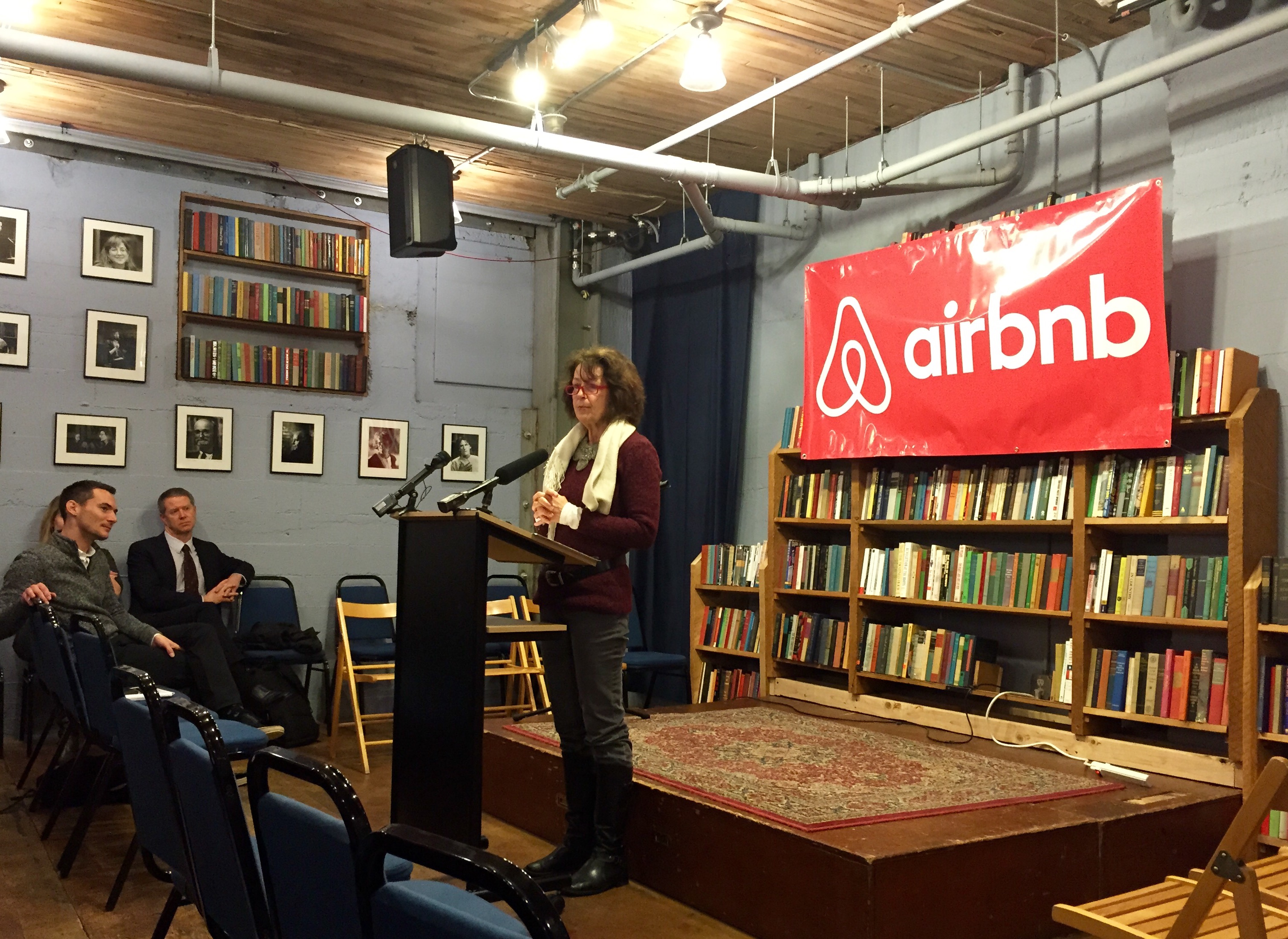Seattle is growing like mad, and rents are skyrocketing… as everyone knows.
And one of the many questions at play in the affordable housing debate, particularly over the last six months, is whether or not short-term rental services like Airbnb and VRBO are also contributing to the problem. Are they shrinking the city’s housing stock even more, and thus shoving up rents, by allowing property owners to make more money renting to tourists for a few hundred dollars a night than they would offering the space to long-term residents?
The answer, according to Airbnb, is a quantifiable “No.” They’ve released several reports that analyze the home-sharing company’s impact on Seattle, and the numbers are designed to allay our fears: In December, their report found that 81 percent of all Airbnb hosts in Seattle are primary residents of their homes (as opposed to absentee landlords), and almost 80 percent are renting their entire home on a short-term basis for less than 90 days a year.
“157 days is the tipping point when you’d out-compete what you’d get on the private market for a long-term rental by doing short-term rentals,” says David Owen, Regional Head of Policy for Airbnb. “The vast majority of the activity on our platform [in Seattle] falls well below that number.”
As Seattle Weekly
reported last summer, one Airbnb skeptic, data journalist Murray Cox, has found something quite different: According to his analysis, about 40 percent of Seattle’s Airbnb units are high-frequency vacation rentals, or those that are occupied an estimated 172 nights a year by Airbnb guests.
In any case, as part of a clear effort to combat naysayers like Cox, Airbnb just released a second report, “The Impacts of Home Sharing in Seattle,” conducted by independent economic research firm Land Econ Group. Like the December report, this one also aims to calm the doubters with some impressive stats: From August 2014 to July 2015, Airbnb generated a total of $178 million in revenue for Seattle, including $108 million in direct spending on Seattle businesses; as a result, it also supported 1,700 jobs. Capitol Hill’s Airbnb guests alone spent $5 million on the neighborhood’s businesses.
At a small press conference Thursday celebrating the release, all the speakers were very excited.
“It’s exciting for us to take a look at our impact in Seattle,” said David Owen, by way of introduction. Then, to start his short speech about the importance of tourist dollars in Seattle, Visit Seattle’s vice president David Blanford said he was “real excited about this research.” Sierra Hansen, executive director of the Capitol Hill Chamber of Commerce, added that she was also riveted by “this exciting study,” emphasizing that Capitol Hill businesses need more daytime visitors. “These businesses would not thrive in today’s economy without the foot traffic” that travelers staying with Airbnb hosts provide, she said.
All this comes at a time when Airbnb and VRBO and other, similar services are coming under scrutiny by the Seattle City Council. Short-term rentals of this nature are thus far not regulated much at all, but Councilmember Tim Burgess is considering developing legislation that would prevent the kinds of things we’re fearing, and rein in those who’re manipulating the system.
He published a blog post on Wednesday promising to address the city’s fears. “Left unchecked, there is concern that online rental platforms, like Airbnb and VRBO, just might provide enough financial incentives to cause homeowners to switch long-term rentals to short-term vacation rentals,” he writes. “At a time when we face a shortage of affordable rental housing, this issue deserves a closer look.” (Last summer, this was Burgess’ then-competitor Jon Grant’s platform. Go figure.)
As a result, Airbnb is certainly interested in getting the good stats out early. “We hope this report is the first of many steps in working with the City of Seattle and members of the larger community to create common sense regulation,” today’s report summary reads.
“I think just sort of level-setting amidst the noise is useful,” says Airbnb’s David Owen, adding that he hopes the city’s regulations will differentiate between people who’re using Airbnb to supplement their own income versus those “edge” users. “Some cities have one set of regulatory rules for primary resident home-sharing,” he says, “and another more intensive regulatory structure for those who do want to operate those full-time vacation rentals.”
For the record, then, this is the argument that Airbnb is making as the conversation about short-term rental regulation moves forward in Seattle:
1) Airbnb understands your fears, and it is not what you fear. According to their data, people are using Airbnb in Seattle to supplement their income, not as an income.
2) Airbnb has a positive impact on not only on residents’ ability to make ends meet, but also on the local businesses you know and love.
“There are obvious fears in cities where housing is expensive about anything that would make housing less available and more expensive,” says Owen. “I live in San Francisco; I have those fears. I live them every month when I write that rent check.”
Still, it’s worth noting that “the listings on our platform take up less than one percent of the housing stock in the city of Seattle,” he adds. “So even if every one of them was a full-time hotel that had been taken off the market — which they are not — the impact on the market would be nonexistent.”








